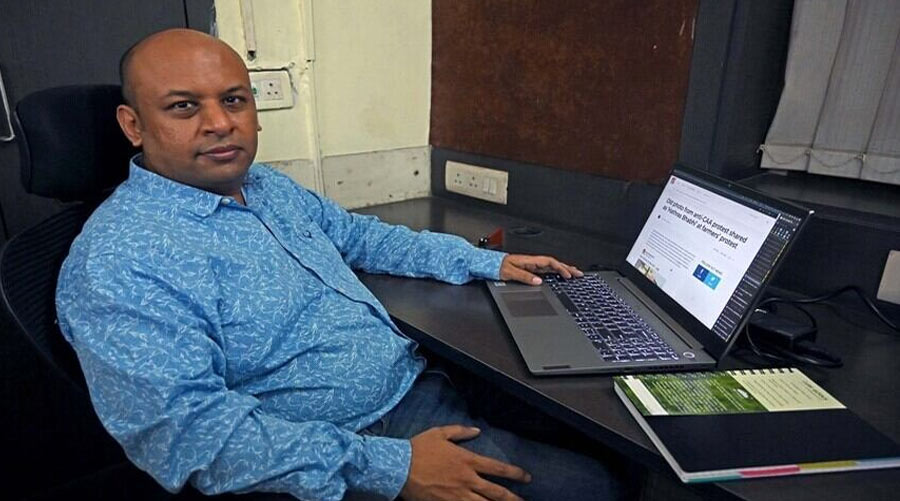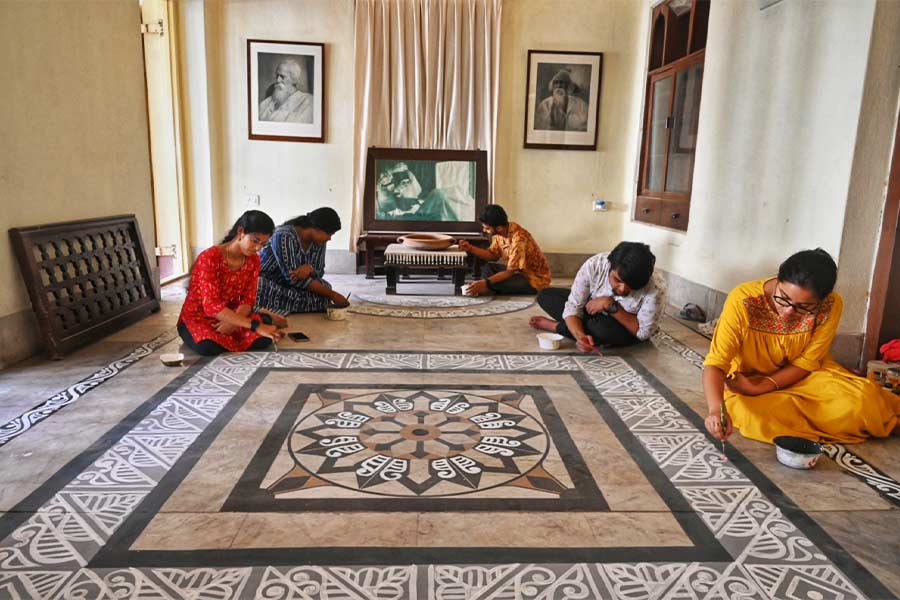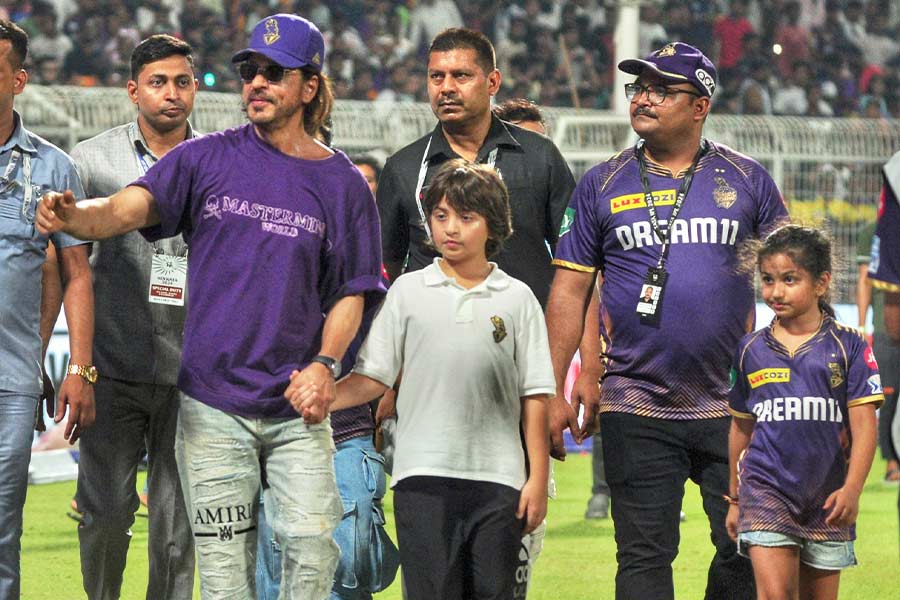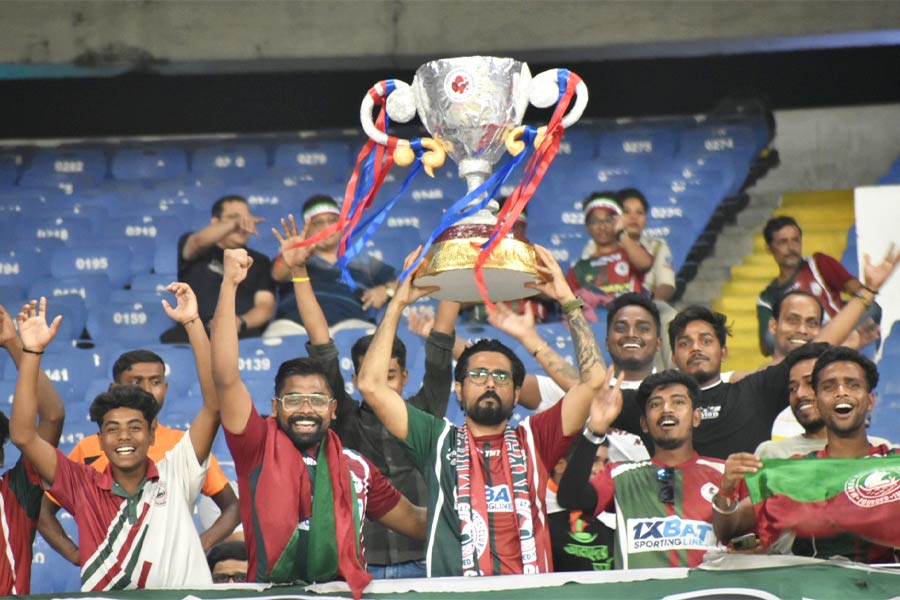Alt News, the popular fact-checking website, has recently opened an office in Kolkata. Pratik Sinha, the co-founder of the site, has shifted to the city to spearhead Alt News’s activities here. My Kolkata spoke to Sinha about his fight against both misinformation and disinformation, which is deliberate deception; his vision for Alt News; the reasons behind opening an office in Kolkata; lack of digital literacy in India and more. Edited excerpts from the conversation follow.
My Kolkata: Welcome to Kolkata, Pratik!
Pratik Sinha: Thank you.
You are part-Kolkatan, aren’t you?
No, no! I have been to Kolkata two or three times while in school and once during my college days. My mother is a Gujarati from Ahmedabad. My father is a Bengali. That is my only connection to the city. My father was born in Kolkata, but never lived here. He grew up in Bilaspur (Chhattisgarh) and all my summer vacations as a child were spent there.
Why did Alt News choose Kolkata over other cities to set up a new branch?
We did not choose Kolkata; we chose West Bengal. That is, not the city but the state. While Alt News has become popular among a certain section of the population since we started in February 2017, the majority is still unaware that there is something called fact-checking.
We considered three states — Tamil Nadu, Kerala and West Bengal — where we thought we would have the least political opposition to the work we want to do. One reason we chose West Bengal is because I was leading this effort and I speak Bengali, but neither Tamil nor Malayalam. We are also talking about media literacy and community education in rural areas. So it is important for me to know the language to lead that effort. Another reason is that this is also a very important area politically. If we start here and create a model of how an entire state can approach the issue of information literacy, then, maybe, that model can be applied to the neighbouring states too.
So, for your Kolkata base, digital literacy will be the priority?
That is why we shifted here. A lot of people are internalising political and health-related misinformation every day and forming opinions based on that misinformation. This is leading to a massive polarisation in society, especially because of the political misinformation. India lacks digital literacy. So we started thinking about where to begin if we were to create a social impact in this sphere. Our plan is to focus on one geographical area at a time but at multiple levels; community, college, schools, wherever there is organised education, and see if we could create a group of people invested in this issue. We wish to introduce the subject of information literacy at all levels.
Will the Kolkata and Ahmedabad branches have separate roles then? One focused on digital literacy, the other on journalism?
In a small organisation you have to do multiple things. We are still a 10-people organisation. So some people working on the journalistic side of the job will have to work on the media literacy side as well. But yes, there would be more people who would come in and work on both sides. We’ll soon start Alt News Bangla, which would need dedicated staff. None of us are equipped to work on Alt News Bangla. Although I can speak Bengali, I can’t read or write Bengali.
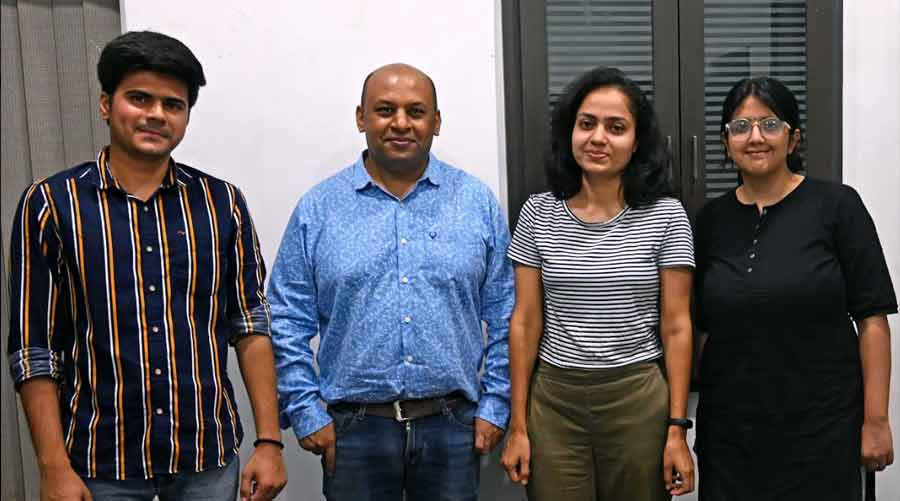
(Second from the left) Pratik Sinha with his Kolkata team members
Amit Datta/ My KolkataDinner-table talk and sociopolitical issues
Your father, Mukul Sinha, was a lawyer and human rights activist. How has he shaped your career?
It’s not just my father; both my parents had a role to play. My mother, Nirjhari Sinha, is the director of Pravda Media Foundation, a non-profit company under which Alt News functions. My mother has worked as a scientist for 35 years but she was also a social activist.
My father did his MSc in physics from IIT Kanpur. He later did his PhD from the same organisation my mother was working in, got involved in union activities and was eventually terminated. He then got into labour issues and became a lawyer.
I had a childhood where dinner-table conversations revolved around sociopolitical issues. So that was always at the back of my mind. But the starting part of my career was traditional in the sense that I finished Class XII, did my engineering, worked in Bangalore for a few years and then went to the US just like many software engineers do. But I got bored after a few years and shifted to Vietnam. Then, in March 2013, I came back to Ahmedabad. In August my father was diagnosed with lung cancer. We started a portal called Truth of Gujarat, which essentially spoke about the Gujarat model and the riots. The portal became quite popular.
My father passed away in May 2014. So, from August to May, we both lived under the same roof. I think those nine months influenced me a lot.
Was Truth of Gujarat also a fact-checking website?
No, it was not. It spoke about Gujarat, though I did write a few fact-checking articles there. There was misinformation then too. But Internet bandwidth was limited, so most of the misinformation was through images and texts; not too many videos. In 2016, the Jan Sangharsh Manch, the Ahmedabad-based civil liberties organisation my parents had formed, joined the Una Dalit Atyachar Ladai Samiti founded by Jignesh Mewani in a march from Ahmedabad to Una. I documented the march on social media. That had a lot of impact and I thought, maybe, I should do something media-related. Moreover, I was not all that happy with my engineering career. I felt my work was only benefiting the economically privileged. I decided to do something different. In September that year, I wrote the first note as to what Alt News could look like.
We want to focus on community education where we can directly approach the community.
Little intermixing of disciplines in Indian journalism
Did your career in IT help?
Absolutely. As an engineer, I have worked only in start-ups and knew what goes into starting an organisation. Even before starting Alt News, I did everything, from hiring to buying furniture and looking for office space. So, that kind of experience helped me. Where my engineering knowledge came in handy was that I made the Alt News website. We did not need a web designer. Being an engineer I also knew how to reverse-search Google images and used that knowledge while writing some fact-checking stories in 2014.
In Indian journalism we see very little intermixing of disciplines; more often than not, people are assigned stories with little or no formal training in that subject. For example, a person writing a science story often does not have a science background. It’s the same with tech. That is why no one was addressing the issue of misinformation. Initially, when we started, we did rudimentary stories. Where is this picture from? Where is this video from? We do much more complicated stories now. Even those rudimentary stories couldn’t have been executed by Indian journalists. How do you find the origin of an image or a video? No journalism college taught that in 2017, though some colleges have started to in the last couple of years.
How does it feel to be included in the Peace Research Institute Oslo’s possible candidates’ list for the 2022 Nobel Peace Prize along with your co-founder Mohammed Zubair? The PRIO had also suggested the names of (2018 winners) Nadia Murad and Denis Mukwege and Abiy Ahmed, who won the prize in 2019.
Frankly, I don’t know what it takes to get to that list. Of course, it’s an honour to be included in the list but there’s a lot of work to be done.
How does one become a fact-checker? Do you need specific qualifications?
No qualifications. In fact, we believe that the ability to authenticate information is a life skill and should not be limited to some 20 people across the country. This is something that has to be widespread, something that we can teach in schools. The stronger the fact-checking community gets, the stronger would be the response to misinformation. That is why we want to create a community of volunteers who can go to neighbouring districts and teach a small fact-checking course with some ready-made material which we would provide; show them a video, raise awareness, and identify individuals who can become volunteers. Basically, increase the community.
Has any college or university approached Alt News for a workshop?
Last year we did a workshop with the Asian College of Journalism. I have spoken at numerous universities. But the thing with universities is that they move slow. Schools too move slow. That is why we want to focus on community education where we can directly approach the community. At the same time we want to try and ensure digital education at every level of the curriculum.
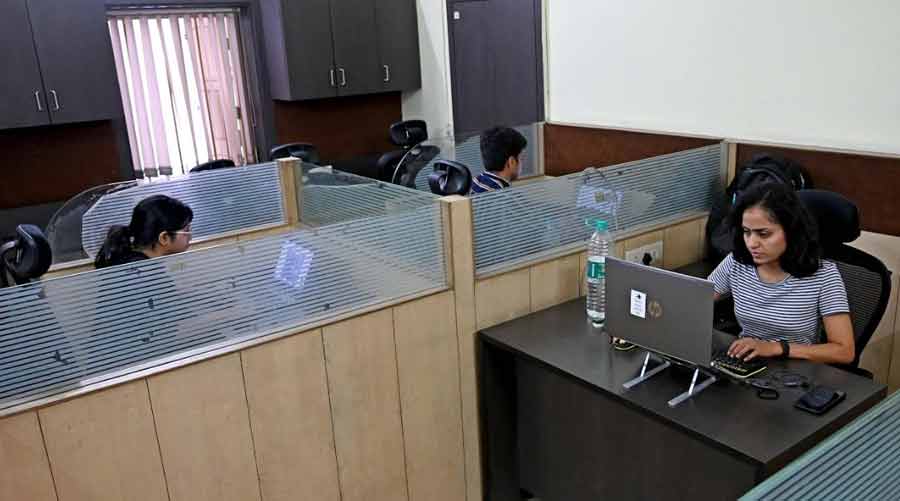
The focus of Alt News's Kolkata offshoot will be on increasing digital literacy among the masses
With medical misinformation, it is not just about debunking it; it is also about weaning people off mistaken ideas.
Anybody who has access to computers should have information literacy
There are schools which ban students from using mobile phones on the campus. How do you think they will approach this issue of kids going through a digital literacy course?
Again, this is not something we will be able to do in a year or two. This is a long-term plan. In West Bengal, for instance, I would say it would take four to five years to actually do something of this scale.
There are schools that have computers as a subject. Our point is, along with computer education, there should be digital literacy. Anybody who has access to computers should have information literacy.
We have seen that child-kidnapping rumours keep making the rounds of the Internet. Such misinformation is not politically driven. They don’t cater to any particular agenda. So why do these rumours surface?
This is something that has confounded us. Every message is translated into multiple languages. The same message circulating in Maharashtra in Marathi is also making the rounds in Gujarat in Gujarati. In Bengal it is circulating in Bengali; in Assam it’s circulating in Assamese. Who translates these messages? It does not happen automatically, right? Someone is translating. Who is doing that? Only a criminal investigation can answer these questions.
In your experience, which spreads faster? Rumours of child kidnapping or politically driven fake news?
There is no standard rule. For example, right now the Russian and Ukraine conflict is happening. I have already seen a lot of misinformation making the rounds. When the Covid-19 pandemic was at its peak, there was so much misinformation. Misinformation is directly proportional to a society’s insecurities or the news cycle, both in fact. If everyone is talking about hijab, there will be misinformation on hijab. If we are talking about the Uttar Pradesh elections, there will be misinformation around the elections. It is an attempt to control the narrative, hence the spike in misinformation.
During the pandemic, we saw a surge in medical misinformation. So much so that the World Health Organization coined the phrase ‘Infodemic’. How difficult has it been to debunk medical misinformation?
With medical misinformation, it is not just about debunking it; it is also about weaning people off mistaken ideas. In India we have so many health beliefs that are false. Such as, having hot water with lemon or smelling camphor. People were willing to try anything because there was so much panic. Another example of misinformation pertained to vaccines.
The kind of fact-checking that happens in India very often is about just calling up a doctor and getting a quote. But that is not fact-checking. That is merely getting an opinion. At Alt News, what we do under the leadership of Dr Sumaiya Shaikh is look at the data and report exactly what the data say. (Dr Shaikh, science editor for Alt News, works as a neuroscientist in Sweden.)
When did you start working on medical misinformation?
April 2017, a couple of months after we started Alt News.
So it was before Covid?
Much before Covid. We have written on multiple drugs approved by the Ayush ministry.
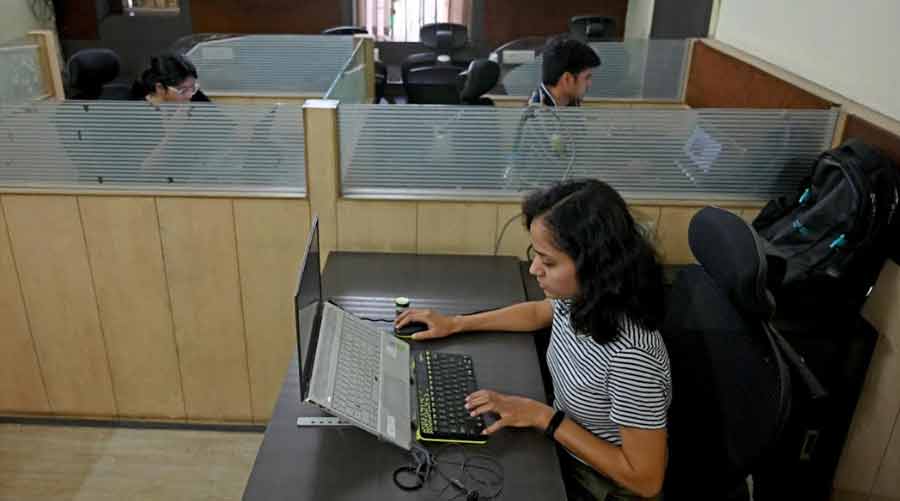
Alt News will soon launch a Bengali section on their website
Amit Datta/ My KolkataOur current focus is that fact-checking needs to be addressed not just as a journalistic issue but also as a tech initiative, an education initiative.
Fact-checker cannot be adjudicator
Do we need punitive measures against people who spread misinformation or disinformation regularly?
I am deeply conflicted about this issue. My personal opinion is that it is a slippery slope. We have to understand misinformation and also disinformation, which is a type of information. Who decides what is misinformation and what is disinformation? A fact-checker cannot be an adjudicator when it comes to a legal case. So, who decides that? That is when the state apparatus, the judiciary and the police come into the picture. When Article 370 was abrogated, a video from Kashmir was announced as fake by the home ministry, which later turned out to be not fake. Now imagine a law that leads to punishment; it becomes a tool in the hands of the governments to go after journalists. They can then easily say this is fake news; so go to jail. I don’t think that approach is right. This actually needs a conversation with multiple stakeholders because this is a policy issue.
So the most effective way would be to increase digital literacy?
Yes, of course. Literacy has to come first. People don’t know how to surf the Internet highway. They don’t know how to figure out whether something on the Internet is true or not.
What do you think platforms like Alt News will look like in the future?
Our current focus is that fact-checking needs to be addressed not just as a journalistic issue but also as a tech initiative, an education initiative. We have an app on the Android app store which automatically detects if an information has already been fact-checked. That’s a technology we developed. I think nobody has developed something like this. It’s still in its infancy but we have developed something like that. The app is called Alt News.
As far as fact-checking a story is concerned, I am much enamoured by some of the investigations happening outside India. For example, BuzzFeed News did an investigation on secret jails in China. They looked at areas greyed out on the local map. BuzzFeed News spent two years mapping each of these greyed-out areas and looking at other mapping software to find out buildings with similar architecture to figure out these were the secret jails.
BBC Africa had a great fact-checking story on the killing of some people. The authorities had been denying it. But the BBC proved otherwise. We want to go into these areas where so much misinformation comes out even from the highest levels. But access to information is difficult. We don’t have the funds.
How does Alt News run?
For three years, starting 2018, we had a grant from the Independent Public Spirited Media Foundation, which is a non-profit trust where a lot of people such as Azim Premji, Kiran Mazumdar-Shaw and Aamir Khan had donated to create a corpus. That grant ended in 2021. So now we are completely dependent on crowdfunding.
How viable do you think this donation-based model is?
Viability depends on multiple things. The language we are operating in, for one. We operate in both Hindi and English. We also have a Gujarati initiative where we put out videos. Now we are planning a Bengali initiative.
When will we see the Bengali section?
We are looking for some seed money to start the digital literacy campaign and Alt News Bangla. Hopefully, we should be able to start in the next three months.


